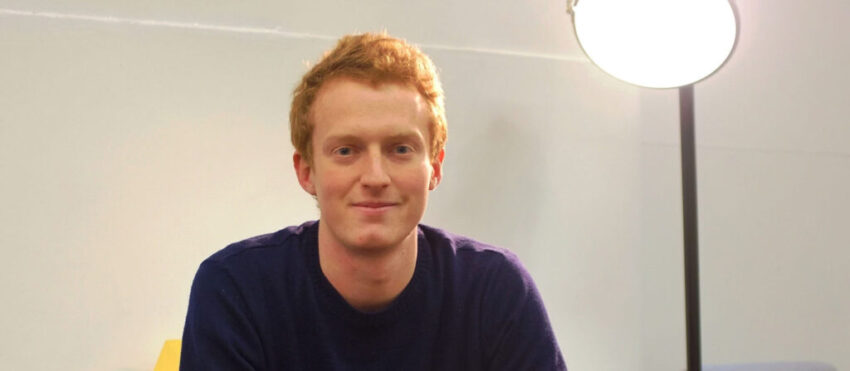What does your company do? What products or services does it provide?
Active Minds is a young product design company. We design, develop and sell activity products for people who have dementia. Each of our activity product prototypes are developed and tested by people with dementia, their family members, and care professionals in various settings, before they are refined and eventually manufactured.
Where did the idea for your business come from?
I was encouraged to start the business while I was at university at Kingston studying Product Design. My grandfather had been diagnosed with Alzheimer’s (the most common dementia) while I was still at school and his condition had worsened over time. As my grandfather’s cognitive functions changed, so did his ability to partake in hobbies and activities he’d once enjoyed. He was a keen puzzler, but by the time I was at university, he was unable to complete a puzzle designed for a child. One day, my university year received a series of briefs from the RSA and one of those briefs challenged us to design a product with a social function. I decided that I would use the brief to try to design a puzzle for my grandfather that he could do by himself, and enjoy. Luckily for me I had a wonderful lecturer who encouraged my project – Professor Hilary Dalke (Professor of design, and director of the Design Research Centre and Design for Environments). Hilary helped me to test my dementia puzzle prototypes with St. George’s Hospital and Barchester Healthcare. The puzzle was really well received – the care professionals and families that I spoke to during the process shared their frustration that there was really nothing in the way of age-considerate dementia activities available on the market, and that was certainly something my family and I had experienced too – we had resorted to buying children’s toys for my grandfather by the end. Imagine giving a children’s puzzle to your 86-year-old grandparent. Eighty six years of work, travel and life experiences and there they are with a puzzle in front of them with a theme which is of no relevance to them, and has been designed for a three year old, not for someone experiencing various levels of cognitive decline and changes. I made 100 puzzles and they sold out in two weeks. It was then that I thought I might have a business.
What has been your biggest achievement so far?
Probably building a sustainable (touch wood) social business! We are now in our fourth year of full-time trading and I finally feel we’ve found our feet in the marketplace.
What has been the biggest challenge so far?
One of the biggest challenges has been growing the business at a healthy pace whilst still keeping to a small team.
How would you say you differentiate yourself from the competition?
We keep true to our roots and test all of our product ideas and prototypes with people with dementia and those that care for them. I also believe that we design products that improve the relationships of people in care with those that are caring for them. We don’t design games – we design activities, which are often shared and enjoyed by younger generations, carers, and friends and family members, just as much as by the person with dementia.
What has been the best decision you have made to-date?
To start the business in the first place. It wasn’t always easy to keep plugging away at it when I was in a basement bedroom, fresh out of university and on my own but now we are a six person strong team and I am really happy that the business seems to be working and we can help more and more people with dementia to lead purposeful, fulfilling, fun and active lives.
Where do you see the business in 12 months’ time?
Hopefully as the go-to age-appropriate activities company for people living with reduced cognitive function.
What advice would you give to other entrepreneurs?
Get help from the people you trust to form a really robust business plan, be honest, tell your story, and don’t be afraid to go after the funding you need. The Government’s Business is GREAT campaign offers a wealth of support and advice on topics from funding to export and hiring staff, and I would advise any small business owner looking for help to visit the Business is GREAT website.
What do you find most satisfying about running a business?
The most satisfying aspects are helping to implement social change on an ever-increasing scale and the sense of ownership and pride which comes from seeing the end product go to marke


